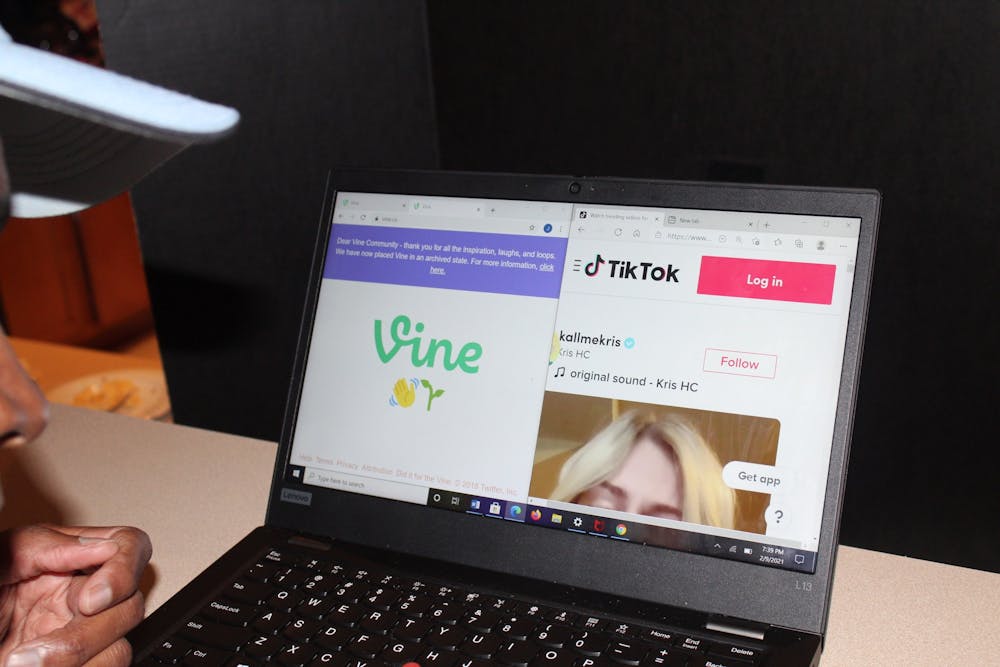In their quarantine-instigated moments of introspection, some UNC students contemplate whether they've seen “two pretty best friends.” Others reminisce about the days when they could “look at all those chickens.”
While some would argue that they are very different platforms, both TikTok and the now-defunct Vine have managed to create huge, lasting presences on the internet by providing global audiences with access to a wide variety of short-form videos.
Vine was discontinued four years ago, while TikTok began in 2016 as a music video app. Since then, TikTok has evolved to include a variety of short videos shared by users.
Some students, like first-year Christian Nightingale, even had their own brief taste of TikTok fame.
“It happened so fast,” Nightingale said. “I made a video about us moving out in the fall, and I think it was probably like 24 hours after I posted it that it had like a million views. So if you just don’t check your phone for a day, a million people will see what you posted.”
Nightingale said she doesn’t consider herself to be an avid TikToker. In fact, she thinks something unique about platforms like Vine and TikTok is their ability to place everyday people in the spotlight.
“You don’t have to have a lot of followers for your videos to be seen by a lot of people,” Nightingale said. “And that keeps your 'For You' page more interesting because it’s not just the same four or five people over and over again.”
It’s no secret that short-form videos have become increasingly popular across many social media platforms, including Instagram and Facebook. Despite this, TikTok has managed to stay relevant for a long time, leaving many to question its longevity.
Livis Freeman, a professor in the Hussman School of Journalism and Media, said he believes TikTok has done a great job sticking with its roots — whereas Vine’s downfall may be attributed to its team’s attempt to go bigger.




